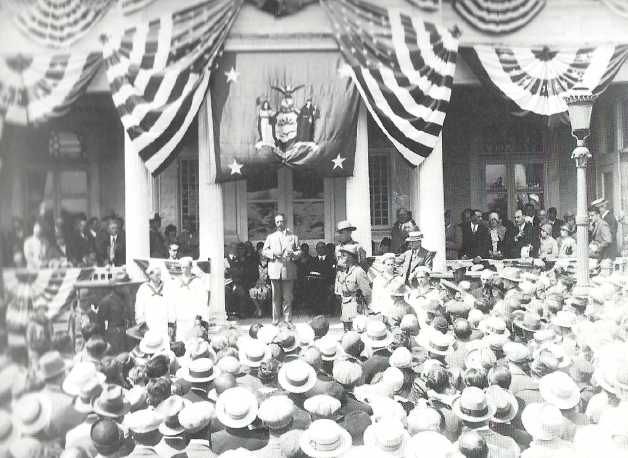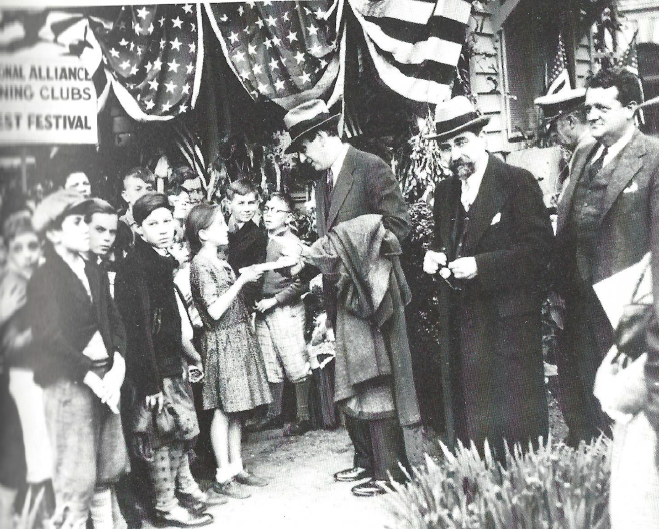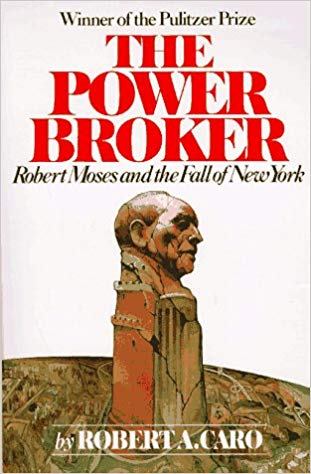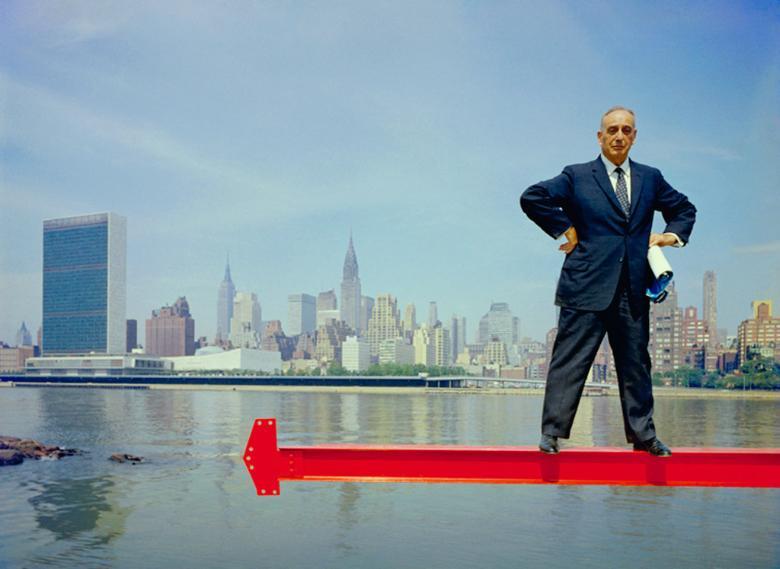Part 4 – The Use of Power
Chapter 11 – The Majesty of the Law
Having been elected, Moses set himself up with a big office and an expensive car. He also ensured that his friends were appointed to the Civil Service with all the trappings. Moses then started to use his new-found authority to start acquiring all the government land in Long Island, as well as all the private land he could get his hands on. He used a combination of charm and threat, depending on the circumstance, but would never compromise his plans and was often unwilling to negotiate.

The rich and powerful on the North Shore refused even to discuss the land. However, unknown to them, Moses’s surveyors were already mapping out their land. Moses’s lawyers pointed out the baron’s, that if they would grant land on the borders of their property then an agreement could be made, but if they didn’t, land would be “appropriated” right next to their houses. Only then was appropriation fully understood, but it was too late. These powers were now law.
The baron’s lawyers now had to challenge Moses on his interpretation of the law and they appealed to Smith. Smith was uneasy about appropriation without negotiation, a clear demand of the bill, but also realised the importance that the Parks movement had been to his re-election. At the hearing therefore, Smith signed the enabling form for appropriation.
There were further challenges to the Commission from rich landowners but Moses countered through the New York Times, saying that a small group of rich golfers were trying to protect their playground. Moses had won in the court of public opinion, but the barons had been supported by a judge, and the matter was due to go to trial. In early 1925, the Senate Finance Committee held hearings, which found that Moses had deliberately gone beyond the law by appropriating land without having the funds available to compensate the owners. The decision was handed over to the legislature. Again, Moses appealed to public opinion, re-phrasing the conflict as between common park lovers and rich and powerful park haters. The legislature put forward a bill limiting appropriation which was passed but vetoed by the Governor. The Commission’s attorneys then appealed the decision, using up time until funds became available to make the appropriations legal.

The weather came to Moses and Smith’s aid. The delay of the legal proceedings had run into the summer, and the sweltering heat had the frustrated citizens running for the limited green spaces available. Smith addressed the city on the radio, highlighting the opposition to the parks by the rich barons of Long Island and the Republican legislature. “I cast my lot with the many” he announced. The Republican legislature responded that the matter was about law and property rights, but to the “steaming millions” in the cities of New York, these arguments held little weight, and the press was on the side of the Governor and the Parks Commission, most importantly the bible of New York, the New York Times.
At the hearing, Smith made a significant speech, extolling the non-political nature of the Parks Bill. The Republicans again passed the bill limiting the powers of appropriation. Smith once more vetoed it. While the wrangles went on, land in Long Island was being bought up by property development, and no money was being made available to allow the appropriation of land for parks. Moses needed money desperately. Smith and Moses turned to Mrs. Moskowitz who suggested August Hecksher, a rich philanthropist who when telephoned, agreed immediately only asking that the park be named after him.
Opposition by farmers, barons and bay men in Long Island was increasing through 1925, and a referendum on the parks plan was heavily in favour of rejection. Moses was also due to stand trial on the charge of breaking his own laws. At the end of 1925, it seemed unlikely that any of Moses’s dreams would become reality. Within three years it would all become reality.
Analysis & Key Takeaways
- Charming and threatening opponents works apparently;
- Work very hard; while everyone else is at the bar you should be working your ass off in joy;
- You need to experience the poverty to help fix the situation! Al Smith knew that experience and was a Catholic without any college education…Power is the ability to get things done: Moses began to be more interested in power rather than principle. He basically became a cunning political actor pretending to be a civil servant…as his power grew he became more arrogant like his mother and grandmother who were authoritarian in approach; getting things done mattered more….Often the rich have more power since they can support political candidates for public office.


